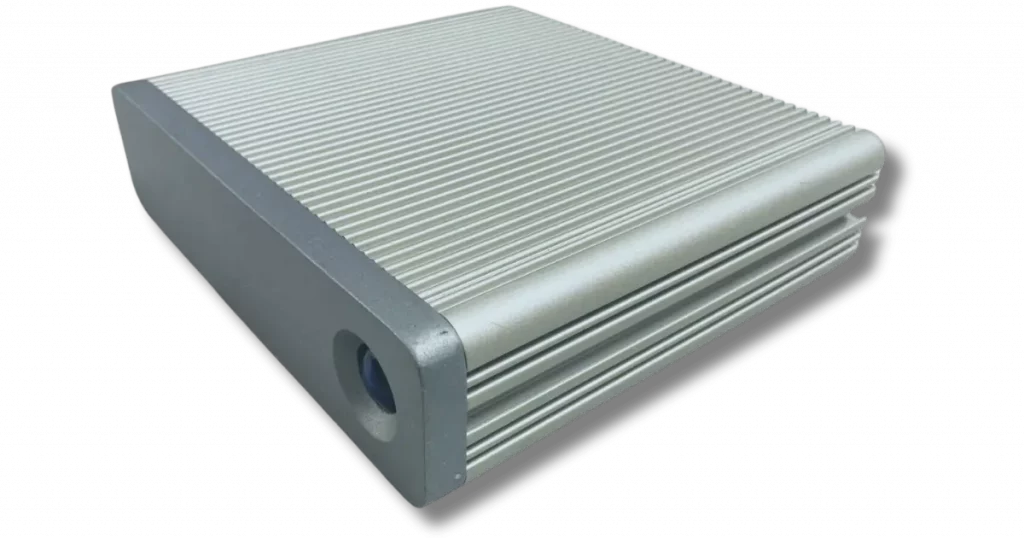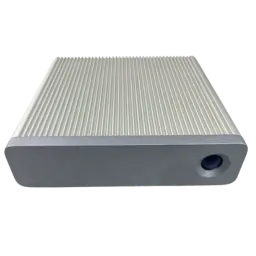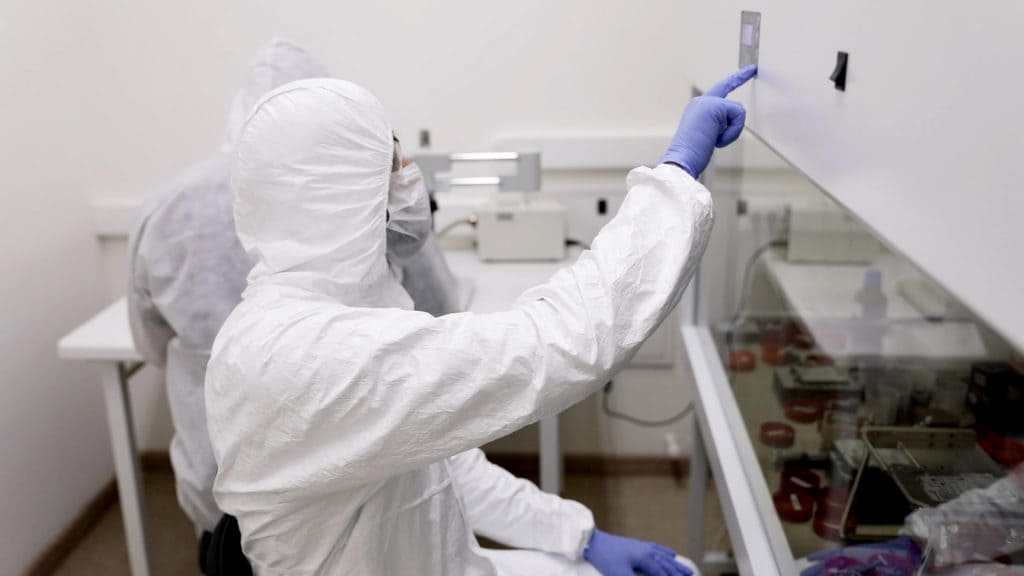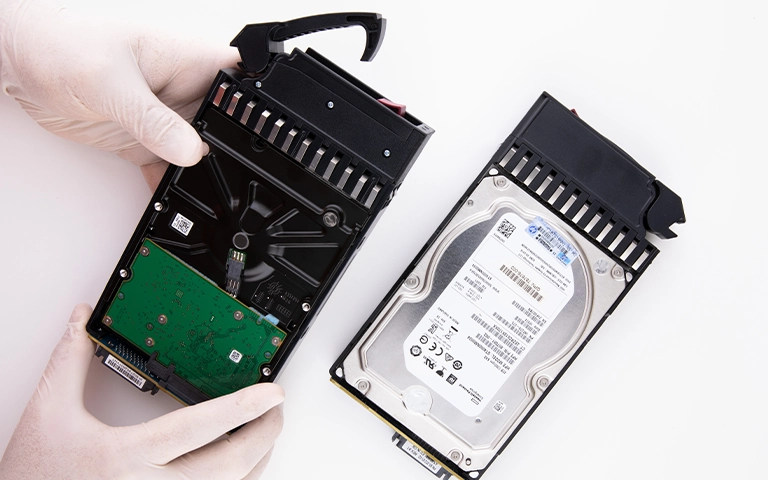A video production company in Maine contacted us after their LaCie d2 Quadra RAID 0 system stopped being recognized by their workstation. The device had been essential for managing large video projects, storing active editing files, and backing up production assets.
When the team tried to upload new video content, the system failed to detect the device. Multiple computers displayed the same issue, showing no sign of the drive. The failure brought critical work to a halt, leaving the company without access to key project files needed for ongoing production.

Client Situation: Failed LaCie RAID 0 Setup
The LaCie d2 Quadra was configured in RAID 0, combining two drives for higher performance and storage capacity. This setup is ideal for video editing and animation workflows but offers no redundancy. When one drive fails, all stored data becomes inaccessible.
In this case, both drives appeared operational, yet the system could not recognize the device through any connected port.
The sudden detection failure suggested possible controller or firmware corruption within the enclosure. Without immediate access, ongoing video projects and production schedules were severely affected.
Troubleshooting Attempts Before Professional Help
Before contacting us, the company tried several recovery methods recommended on the device support website:
Reconnecting to Multiple Workstations: The team tested the LaCie d2 Quadra on different systems and operating platforms, but none detected the drive.
Cable and Power Supply Replacement: They replaced both the FireWire and USB cables and used another power adapter, assuming a connectivity issue.
Manual Firmware Reset: Following LaCie’s online instructions, they attempted to reset the firmware, but the device remained unresponsive.
Third-Party Software Scans: The client tried several detection utilities that failed to locate the RAID volume or identify the individual disks.
After repeated failed attempts, they understood that RAID 0 recovery carries a high risk of permanent data loss if handled incorrectly. To learn more about this, see our article on RAID rebuild data loss risks.

Our LaCie d2 Quadra Recovery Process
Once the device arrived at our lab, our engineers performed a detailed recovery procedure to ensure data integrity and minimize downtime:
The LaCie enclosure was inspected for controller board and interface issues. Both drives were tested individually to confirm functionality.
Using specialized imaging hardware, we created sector-by-sector copies of both drives to preserve all original data.
The RAID 0 configuration was rebuilt virtually by analyzing metadata and determining stripe size, order, and offset.
Engineers corrected corrupted file system records and restored directory structures, ensuring that all folders were readable.
The recovered files were verified remotely by the client, confirming the integrity of their video and animation assets.
Each stage followed the controlled methods outlined in our RAID troubleshooting process to guarantee safe data recovery without risking overwrites.

Remote Verification and Recovery Success
After reconstructing the RAID 0 array, our engineers successfully retrieved all video project files, animations, and supporting media. The recovered data was organized and prepared for remote verification, allowing the client to review files securely from their office.
This feature helped the production team confirm the accuracy of recovered data without visiting the lab, saving valuable time during their ongoing projects.
Once approved, the verified files were safely transferred to a new storage device, restoring their workflow continuity and meeting project deadlines.
Fast turnaround times for business-critical data
Lessons Learned for RAID 0 Users
RAID 0 offers speed and capacity advantages but provides no data protection if a single drive fails. This case demonstrates how even minor hardware or controller issues can make the entire array unreadable.
To reduce the risk of permanent data loss, users should:
Keep backups of all active projects on a separate storage system
Avoid using RAID 0 for long-term data storage
Monitor drive health and controller performance regularly
Seek expert help immediately when recognition issues occur
For more insight into why RAID systems fail, review our article on common reasons for RAID data loss.

Need Help with LaCie d2 Quadra Recovery?
If your LaCie d2 Quadra or any RAID 0 device has stopped responding or is not recognized by your system, professional assistance is essential.
Our engineers specialize in LaCie data recovery, handling complex RAID and drive-level failures with precision.
Whether it involves video projects, design assets, or business archives, we can help you recover your files safely.
Contact RAID Recovery Services today to schedule an expert evaluation and restore access to your important data.
Trust the experts with proven results
Frequently Asked Questions
Why is my LaCie d2 Quadra not recognized by my computer?
Connection failure can occur due to a faulty controller board, damaged cables, or RAID metadata corruption. In some cases, the enclosure firmware may also be affected.
Can I recover data from a LaCie RAID 0 that stopped working?
Yes, data can often be recovered if both drives are still readable. Professional imaging and RAID reconstruction are required to restore access safely.
Should I try recovery software for a failed LaCie RAID 0?
No. Software recovery on RAID 0 can cause overwrites or break existing parity structures. Always consult a recovery specialist before attempting DIY solutions.
How long does professional LaCie data recovery take?
The timeline depends on drive condition and array size. Most LaCie d2 Quadra recoveries are completed within several business days after evaluation.
Can you perform remote verification after recovery?
Yes. RAID Recovery Services offers remote file verification sessions that allow clients to review recovered data securely from their location before final delivery.